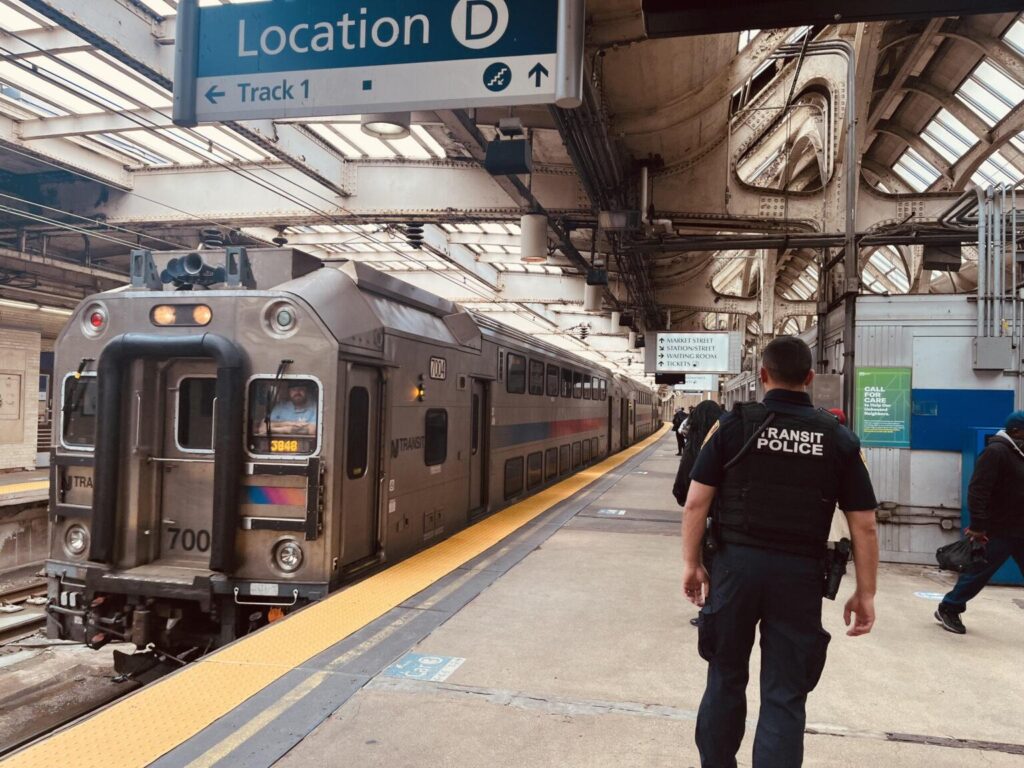NJ Transit and Engineers Union Engage in Pivotal Washington Talks to Avert Rail Strike
This week, NJ Transit officials and representatives from the engineers’ union are meeting in Washington, D.C., for a decisive negotiation session aimed at preventing a potentially crippling rail strike. After weeks of mounting friction over contract negotiations, including wages, working conditions, and benefits, both parties have signaled readiness to engage constructively. The stakes are high, as a strike could disrupt the daily commute of tens of thousands and ripple through the regional economy. Federal mediators are actively involved, seeking to bridge differences and facilitate a timely agreement.
The discussions will center on several pivotal topics, such as:
- Compensation revisions to keep pace with inflation and rising living expenses
- Regulations on work hours designed to minimize fatigue and enhance operational safety
- Improvements to health and retirement benefits for union members
- Job security measures to protect against layoffs and workforce reductions
| Negotiation Topic | Union Proposal | NJ Transit Counteroffer |
|---|---|---|
| Wage Increase | 8% raise over 24 months | 5% raise spread across 36 months |
| Daily Work Hours | Limit to 10 hours per day | Allow up to 12 hours per day |
| Benefits | Expanded healthcare coverage | Maintain existing benefit plans |
| Job Security | Enhanced protections against layoffs | Moderate job security provisions |
Core Issues Fueling the Rail Strike Threat and Their Effects on Commuters
The ongoing stalemate between NJ Transit and the engineers’ union revolves around several fundamental concerns that have brought the parties to the brink of a strike. Central to the union’s demands are fair wage increases that reflect the current economic climate, alongside stricter safety standards to mitigate operational risks that have long plagued the workforce. Compounding these issues are chronic staffing shortages and heavier workloads, which have intensified employee dissatisfaction. On the other side, NJ Transit management points to fiscal limitations and the necessity for sustainable operational reforms to ensure long-term service viability, creating a deadlock with significant implications for the region’s transit-dependent population.
For daily commuters, the prospect of a strike threatens to cause unprecedented disruption. Transportation analysts warn of cascading delays, overcrowded alternative transit options, and increased road congestion as commuters seek other means of travel. Students, workers, and businesses reliant on NJ Transit’s rail services could face substantial challenges, with economic consequences extending beyond the immediate transit system. The table below highlights the primary issues and their direct impact on passengers:
| Primary Concern | Effect on Commuters |
|---|---|
| Disputes Over Compensation | Potential suspension of rail services causing delays |
| Safety Protocols | Increased accident risk undermining passenger confidence |
| Labor Shortages | Fewer trains, overcrowding, and longer wait times |
| Budgetary Constraints | Risk of future service reductions |
Possible Negotiation Outcomes and Their Implications for Regional Transit
The resolution of talks between NJ Transit and the engineers’ union will have far-reaching consequences for both passenger travel and freight logistics throughout the region. A successful agreement would ensure uninterrupted rail service, providing relief to thousands who depend on NJ Transit daily. It could also lead to improved labor conditions and safety standards, potentially serving as a model for other transit agencies grappling with similar labor challenges. Conversely, failure to reach a consensus may trigger a strike, causing widespread disruption not only to NJ Transit but also to interconnected transportation systems, including local bus networks and interstate rail services.
Examining the broader transportation ecosystem reveals several potential ripple effects:
- Chain reaction delays: A strike would severely disrupt the region’s primary transit artery.
- Heightened road traffic: Commuters shifting to personal vehicles would exacerbate congestion on already busy highways.
- Economic fallout: Businesses could experience productivity losses due to employee absenteeism and delayed deliveries.
| Scenario | Severity | Stakeholders Affected |
|---|---|---|
| Contract Agreement | Minimal | Commuters, NJ Transit, Union Members |
| Short-Term Work Stoppage | Moderate | Local Businesses, Passengers, Freight Operators |
| Prolonged Strike | Severe | Regional Economy, Government Bodies, Transit Networks |
Mitigation Approaches for Stakeholders to Assist Passengers Amid Potential Disruptions
In anticipation of possible service interruptions, it is essential for all involved parties to implement proactive strategies that prioritize passenger support and service continuity. Establishing centralized communication channels—such as dedicated apps and websites—can deliver real-time updates, alternative travel options, and clear guidance. Coordination with local transit agencies to boost bus and light rail capacity during peak periods will help ease commuter burdens. Furthermore, deploying mobile assistance units at major stations can provide personalized help to travelers navigating the disruption.
Beyond immediate operational measures, forging partnerships with ride-sharing platforms and community groups can create supplementary transit solutions. These collaborations should be promoted through targeted outreach campaigns emphasizing affordability and accessibility for affected riders. The following table summarizes key initiatives and their anticipated benefits for passengers:
| Initiative | Details | Benefit to Passengers |
|---|---|---|
| Centralized Communication Hub | Real-time updates via digital platforms | Instant access to travel information |
| Augmented Bus Services | Additional buses on high-demand corridors | Shorter wait times and less crowding |
| Mobile Support Centers | On-site assistance at key transit points | Tailored travel guidance and support |
| Ride-Share Collaborations | Discounted rides for commuters | Cost-effective alternative transportation |
Looking Ahead: The Significance of the Upcoming Negotiations
As the possibility of a rail strike looms, the spotlight is firmly on the forthcoming discussions between NJ Transit and the engineers’ union in Washington, D.C. The resolution of these talks will profoundly influence the daily lives of commuters throughout New Jersey and the stability of the region’s transportation infrastructure. Stakeholders and passengers alike remain hopeful for a constructive outcome that preserves uninterrupted service and fosters a sustainable working environment for transit employees.













